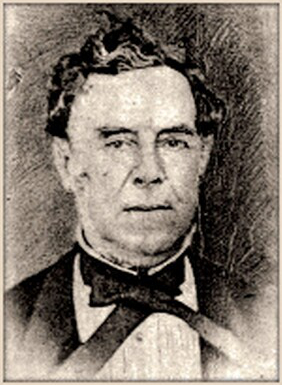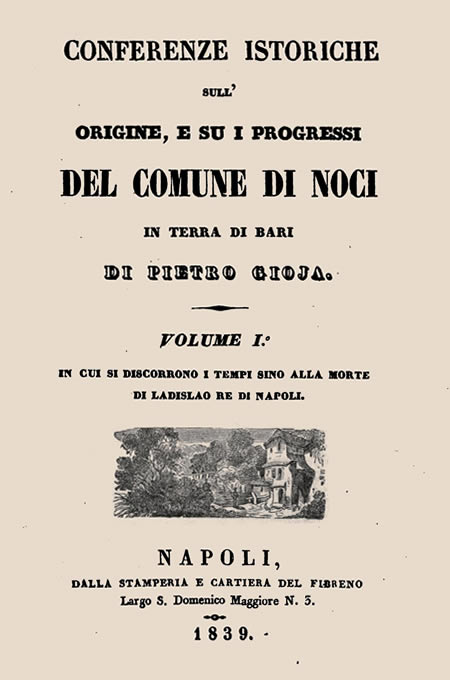This website uses cookies so that we can provide you with the best user experience possible. Cookie information is stored in your browser and performs functions such as recognising you when you return to our website and helping our team to understand which sections of the website you find most interesting and useful.
When one starts digging into local history, as from a crystallized past, names, stories, plots and explanations begin to emerge; they give meaning to us and to history with a capital «H».
Searching amongst books and legal acts of a small town like Noci, one find oneself amazed and a veil is lifted showing unexpected explanations on why those inhabitants are different from those of a nearby city.
These are the sensations arising while reading «Conferenze Istoriche» [Historical Conferences] by Pietro Gioja, written at the end of 1800.
Obviously we won’t be here summarizing his ponderous work, but a feeling is what we would like to communicate; a feeling still alive amongst the people of this nice town of nearly 20 thousand inhabitants, between the towns of Alberobello, Castellana Grotte, Gioia del Colle, Mottola (TA), Putignano in the province of Bari, at an altitude above the sea level between 331 and 470 meters.
The history of this city begins at the dawn of the year 1000, but it is only in 1150, with the change of governance of the Reign of Naples to the Normans, that it begins to be appreciated for the beauty of the location and the richness of the woods, so much so that Willem “the Bad”, prince of Taranto, made time for a thorough visit.

100% organic products
All our plants are grown without the use of herbicides or fertilizers. The fruits that give us are organic and processed without the use of preservatives or colorings.

«It is for this reason – writes Gioja in his fourth conference – when the hand of the farmer did not have yet taken from the land its gigantic products, when the sound of the axe did not echo in the darkest gorges of our valleys, when fallow deer and deer and wild boars found there a safer fold, then was the time when the woods of Noci were a place of friendship, a place of fun for the highest knights of the earliest cities; they would form parties headed by noblemen, sometimes the king himself, to celebrate into the woods the pleasures of hunting».
The loss of much of its woods occurred around the half of 1800, when agricultural pressure begun. In 1871 begun the logging of some areas of the Bonelli forest, in 1885 was the turn of some areas of the Poltri forest and so forth.
A story that you can read through the Farms, traces left are remarkable and a common thread combines our Dirupo Masseria to the thread of local history.
In the 1947 census, the Masseria Dirupo still had 19,13 ha of woods.
The historical and environmental inheritances, therefore, are large; of one thing one can be certain: the love we use to relate to this territory where our roots lie.



